CARMINA BURANA – GO BIG OR GO HOME
Tuesday, January 21, 2025, 7:30pm
Meyerson Symphony Center + Livestream
Jerry Junkin, Artistic Director & Conductor
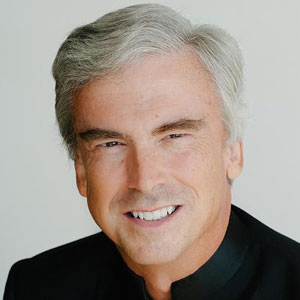
In his 31st season as Artistic Director and Conductor of the Dallas Winds, Jerry Junkin is recognized as one of the world’s most highly regarded wind conductors. He has served as Music Director and Conductor of the Hong Kong Wind Philharmonia since 2003, and Principal Guest Conductor of the Senzoku Gakuen College of Music Wind Symphony in Tokyo since 2007. Additionally, 2024-2025 marks his 36th year on the faculty of The University of Texas at Austin, where he holds the Vincent R. and Jane D. DiNino Chair for the Director of Bands. There, he also holds the title of University Distinguished Teaching Professor. Previously, he served on the faculties of both the University of Michigan and the University of South Florida. In addition to his responsibilities as Professor of Music and Conductor of the Texas Wind Ensemble, he serves as Head of the Division of Conducting and Ensembles and teaches courses in conducting and wind band literature. He is a recipient of multiple teaching awards, and students of Mr. Junkin hold major positions throughout the world.
Mr. Junkin is an enthusiastic advocate of public school music education, having conducted All-State bands and festivals in forty-eight states and on five continents. He spends his summers in residence at the Interlochen Arts Camp in Michigan, as well as appearing at major music festivals throughout the world.
Mr. Junkin has served as President of the Big XII Band Director’s Association and is a member of the Board of Directors of The John Philip Sousa Foundation, is Past-President of the American Bandmasters Association, and is Past President of the College Band Directors National Association. Regularly making guest appearances with ensembles such as the Tokyo Kosei Wind Orchestra and the Taipei Symphonic Winds, he continues to conduct throughout the United States in addition to multiple appearances in Japan, China, and Europe. In 2005, he was presented the Grainger Medallion by the International Percy Grainger Society in recognition of his championing of Grainger’s works, and he has received numerous career awards from Kappa Kappa Psi, Phi Beta Mu, and the Midwest Clinic, among others. Mr. Junkin is a Yamaha Master Educator.
Haley Sicking, soprano
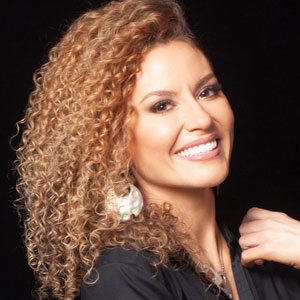
Hailed by Opera News as “blossoming in real time” with “her creamily sung Rosalinde”, and in Brooklyn Discovery for her “Truly bravura performance! Generous and ample soprano and strong coloratura”, soprano Haley Sicking has thrilled audiences with her versatile performances in opera, concert, recital, musical theatre, jazz, and early and contemporary music.
Haley’s performances in New York as Rosalinde in Strauss’ Die Fledermaus, received great praise and it is quickly becoming one of her signature roles. “As Rosalinde, Haley Sicking is nothing short of a star: a tireless, secure soprano that managed to be both voluminous and flexible.” (Parterre box) Voce di meche also wrote: “If the role of Rosalinde could have been better portrayed by anyone but stunning soprano Haley Sicking, we have yet to imagine it. Her comedic skills are prodigious and her lusty soprano shone in the Czardas.”
Haley made her Carnegie Hall debut as a soloist in Rutter’s Requiem and the world premiere of Glasgow’s Requiem. She has recently had the honor of returning to this beautiful hall to perform the world premiere of a new piece, Gloria, composed by Michael Glasgow and will be returning once again to perform another world premiere in May. Since performing a concert tour in China including operatic and musical theatre repertoire in 18 different cities, Haley has become a frequent guest artist in cities all over China. Haley has recently returned from performing a concert of operatic scenes and selections in Guatemala and is currently preparing for her work as Euridice in Orfeus, by Nmon Ford, which will make its premiere at Lincoln Center in 2025 and run at Opera Detroit in June. She is also excited about her upcoming engagements as Cleopatra in Giulio Cesare, by Handel, Micaela in Bizet’s Carmen, and Reno Sweeney in Anything Goes, by Cole Porter.
Haley has recently had the honor of being included in a new upcoming Netflix Series about Extraordinary people where episode three of ten will dedicated to her and her story. She has also recently been featured as a guest on the Dallas Music Network’s spotlight series.
A native of Dallas, TX, Haley Sicking holds a Master’s in Music from The Cincinnati Conservatory of Music. She earned a Bachelors in Music from the University of North Texas, where she was awarded the prestigious Winspear Opera Fellowship and the McKinley award for top incoming student.
Thomas O'Neill, tenor
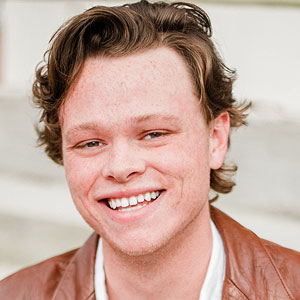
Thomas O’Neill is a 25-year-old tenor originally from the small Blue-ridge town of Abingdon, Virginia. He attended the University of Houston and now resides in Houston where he has appeared in Moores Opera Center productions in lead roles such as: Don Ramiro in La Cenerentola, Don Basilio in Le Nozze di Figaro, Don Polidoro in La finta semplice, Henrik in A Little Night Music, Vašek in The Bartered Bride, Eisenstein in Die Fledermaus, and Ferrando in Cosi fan tutte. He also has recently appeared as Richard Dauntless in Houston Gilbert and Sullivan Society’s production of Ruddigore. Thomas has also played Pluto in Berlin Opera Academy’s production of Orphée aux enfers and Tamino and Alfred in Lyric Opera Studio Weimar’s productions of Die Zauberflöte and Die Fledermaus. Mr. O’Neill is an early music scene regular in Houston where he has been engaged with Ars Lyrica Houston as a soloist in six concerts including works of Purcell, Carissimi, Monteverdi, Charpentier, and C.P.E. Bach. He has been a staff singer at St. Philip Presbyterian in Houston for six years; here, he regularly performs solo recitals and in collaborative concerts.
Mark Diamond, baritone
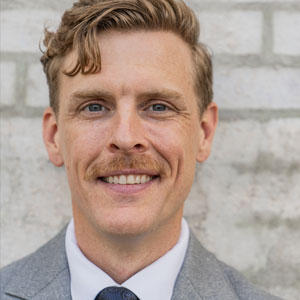
Mark Diamond is a highly sought after lyric baritone and voice teacher. This season, he performs with Austin Opera, Dallas Winds, and Mercury Chamber Orchestra, among others. Known for his versatility, he excels in a wide array of operatic roles, concert works, and choral music. Highlights include featured performances with Houston Grand Opera, Glimmerglass Festival, and with orchestras such as Cincinnati Symphony and Seoul Philharmonic. Mark is a competition winner and recipient of several prestigious awards, including first prize at the HGO Concert of Arias in 2011. Earning his degrees from Georgia Southern University, Rice University, and University of Houston, Dr. Diamond currently teaches at Baylor University while maintaining an active performing career.
Fort Worth Chorale
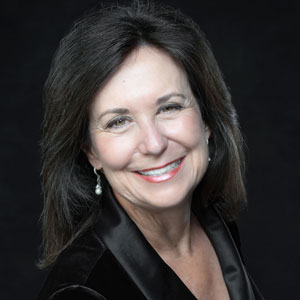
Founded in 1962 as Schola Cantorum, the Fort Worth Chorale is Texas’s oldest independent, auditioned, volunteer adult civic choir. Over its 63-year history, the Chorale has performed hundreds of concerts in North Texas, across the United States, and in Europe. Notable performances include the Kennedy Center in Washington, D.C., Robert Shaw’s Festival of the Masses in San Francisco, the Martin Luther Festival in Worms, Germany, and a collaboration with the London Symphony Orchestra. The choir has also been featured multiple times at the Texas Choral Directors Association conferences. The Chorale’s singers come from various professional backgrounds, with many serving as choral directors and voice teachers in the Dallas-Fort Worth metroplex. Deeply connected to Fort Worth and Tarrant County, the Chorale collaborates with local institutions like the Fort Worth Symphony Orchestra, the Texas Ballet Theatre, and area schools and universities.
In 2021, the Fort Worth Chorale launched the “Schola Cantorum Project,” commissioning composers
from underrepresented cultural backgrounds to create choral works for free distribution to underserved Title One schools. Throughout its history, the Chorale has been led by only five permanent conductors, each with national recognition: founder B.R. “Bev” Henson (1962-1973), Gary Ebensberger (1975-2000), Donald Bailey (2001-2007), Jerry McCoy (2008-2019), and Karen Kenaston-French (2019-present). >> WEBSITE
Dr. Karen Kenaston-French is Professor and Director of Choral Activities at the University of Texas Arlington, where she conducts the A Cappella Choir, teaches graduate and undergraduate conducting, and heads the Vocal Area. Under her direction the UTA A Cappella Choir given invited performances at prestigious conferences including National Collegiate Choral Organization, Southwestern Division American Choral Director’s Association, the Texas Music Educators Association state convention, and served as Choir-in-Residence for the national ACDA conducting competition. Dr. Kenaston-French has been guest conductor for honor choirs in Colorado, West Virginia, Tennessee, and for numerous TMEA region choirs. In 2019 she assumed the position of Artistic Director/Conductor of the Fort Worth Chorale, only the fifth conductor in the organization’s 63-year history. Under her direction, the ensemble has commissioned composers Shawn Kirchner, Sarah Quartel and Taylor Scott Davis, and has secured invitations to perform with the Fort Worth Symphony Orchestra. A native of Huntington, WV, Dr. Kenaston-French holds degrees in vocal performance from West Virginia Wesleyan College, choral conducting from Southern Methodist University, and a D.M.A. in choral conducting from the University of North Texas. In 2011 she was a conductor for the Choral/Orchestral Master Class of the Oregon Bach Festival, under Helmut Rilling and Jeffrey Kahane.
University of Texas-Arlington A Cappella Choir
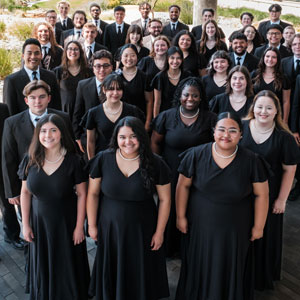
The A Cappella Choir is the premiere choral ensemble at the University of Texas Arlington. Comprised primarily of undergraduate and graduate vocal music majors, the choir has garnered an impressive list of prestigious invitations. They have given invited performances at the 2014, 2019 and 2024 conventions of the Texas Music Educators Association, the 2019 National Collegiate Choral Organization conference, the 2022 and 2016 Southwestern Division conferences of ACDA, and served as Ensemble-in-Residence for the National Student Conducting Competition at the ACDA national convention in 2015. The choir frequently performs with professional organizations around the region, including with the Dallas Symphony Orchestra, the Fort Worth Symphony Orchestra, the Fort Worth Chorale, and the Texas Ballet Theatre. The choir has appeared with the Rolling Stones in concert at AT&T Stadium in Arlington, and the Eagles at American Airlines Center in Dallas and Will Rogers Auditorium in Fort Worth. The choir has twice been honored with the American Prize for Choral Performance: 2014 as a finalist and 2021 with third place. >> WEBSITE
East Texas A&M University Chorale
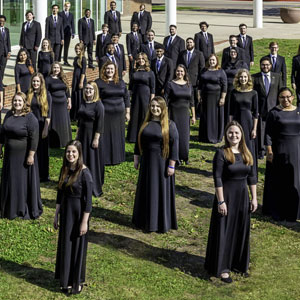
The East Texas A&M Chorale is the university’s premier choral ensemble selected by audition from undergraduate and graduate students in the School of Music and the campus at large. The Chorale sings a wide range of substantive literature from all musical periods. In addition to a full schedule of on-campus performances, the Chorale has appeared in convention concerts, workshop presentations and choral festivals, as well as tours within the United States and Europe. Under Dr. Randall Hooper’s direction, the Chorale has performed in concert in Carnegie Hall, as the guest American choir at the International Music Festival of Campina Grande, Brazil, toured France performing in Le Madeline Church, St. Sulpice Church and a special concert at the American Cemetery at Omaha Beach in Normandy, toured Austria with performances in the Mozarteum in Salzburg, at the University of Vienna in Vienna and the St. Andrae Parish Church, Mirabellplatz in Salzburg. In addition, in 2019, the University Chorale was invited to perform for the Texas Music Educators Association Convention. >> WEBSITE
Greater Dallas Choral Society Cantabile Chorus
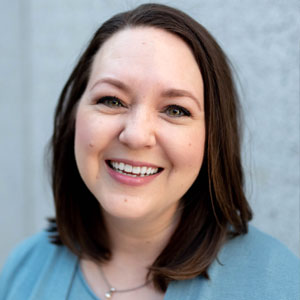
The Greater Dallas Choral Society for children and youth is the premiere choral ensemble for singers in grades 4–12 throughout Dallas-Fort Worth. GDCS proudly carries forward the 25 year old legacy and mission of the Children’s Chorus of Greater Dallas, which is to give children and youth an experience in choral artistry in a group that reflects the diversity of Dallas.
In its first two seasons under the name GDCS, the chorus has been named the official children’s chorus of The Dallas Opera, collaborated with Dallas area arts groups, and performed in beautiful venues throughout the city. The 2024–2025 season boasts collaborations with The Dallas Opera, the Greater Dallas Youth Orchestra, the Dallas Winds, performances at the Meyerson Symphony Center and the Winspear Opera House, an appearance at the national conference of the American Choral Directors Association, and the joy of children and youth creating beauty with their voices. GDCS has three children’s choruses for singers in grades 4–8, and two high school choruses for singers in grades 9–12.
For more information about concerts, programs, or auditions, please visit www.dallaschoralsociety.org. Auditions for the 2025-2026 season will occur in April and May. Email [email protected] for more information.
Kimberley Ahrens is a nationally recognized choral conductor, educator, and clinician with more than 20 years’ experience enriching children and youth through the study and performance of the choral arts. Recipient of the 2022 Choral Director of Distinction Award from the Texas Choral Directors Association, Ahrens is currently founding Artistic Director of the Greater Dallas Choral Society for Children and Youth (GDCS), which was established in 2022 to carry on the legacy of the prestigious Children’s Chorus of Greater Dallas (CCGD). GDCS was recently named the official children’s chorus for The Dallas Opera, and will be featured at the national conference of the American Choral Directors Association in 2025.
From 2005 to 2023, Ahrens taught choir in the Texas public school system, leading her ensembles to national awards and performances at major conferences for the Texas Music Educators Association and American Choral Directors Associations. In 2009, she received the Texas Choral Directors Association’s Distinguished Young Director Award. She also served nine years as principal conductor for CCGD.
An expert in the adolescent voice, Ahrens is regularly engaged as a clinician and guest conductor for elementary- and middle-school honor choirs throughout the United States. She has also taught at the university level as an adjunct professor and guest lecturer at Southern Methodist University, Abilene Christian University, Texas Tech University, and Florida State University. She holds a Bachelor of Music Education from Texas Christian University and a Master of Music Education from The University of North Texas.
Fanfare
7:15pm, Meyerson lobby
An American Soliloquy
Brooke Pierson
Greater Dallas Youth Orchestra Wind Symphony Brass & Percussion
Jeremy Kondrat, conductor
Program
Go BIG or Go Home [3’30”]
Jessica Meyer
The Eyes of the World Are Upon You [11’30”]
Jennifer Jolley
President Garfield’s Inauguration March (encore)
John Philip Sousa
— INTERMISSION —
Carmina Burana [65’00”]
Carl Orff, arr. Juan Vicente Mas Quiles
Haley Sicking, soprano
Thomas O’Neill, tenor
Mark Diamond, baritone
Fort Worth Chorale
University of Texas-Arlington A Cappella Choir
East Texas A&M University Chorale
Greater Dallas Choral Society Cantabile Chorus
- O Fortuna
- I lament the wounds that Fortune deals
- The joyous face of Spring
- All things are tempered by the Sun
- Behold the welcome
- Dance
- The noble woods are burgeoning
- Monger, give me colored paint
- (a) Round dance
(b) They who here go dancing around
(c) Come, come, my dear companion
(d) They who here go dancing around (reprise) - If the whole world were but mine
- Seething inside
- Once I swam in lakes
- I am the abbot
- When we are in the tavern
- Love flies everywhere
- Day, night and everything
- There stood a girl
- In my breast
- If a boy with a girl
- Come, come, pray come
- On the scales
- Time to jest
- Sweetest boy
- Hail to the most lovely
- O Fortuna (reprise)
Dallas Winds Personnel
PICCOLO
Margaret Shin Fischer
Jennifer Wheeler
FLUTE
Abby Easterling, principal
Kathy Johnson
OBOE
Nathan Ingrim, principal
Abigail Hawthorne
Kristin Perry
ENGLISH HORN
Kelly Diaz-Seitz
E♭ CLARINET
Brendan Fairleigh
B♭ CLARINET
Deborah Fabian, concertmaster
Sharon Deuby, associate principal
Mark Arritola
Ricky Reeves
Evan Schnurr
Kristin Thompson
Jake Hale
Andre Canabou
BASS CLARINET
Mickey Owens
Robin Owens
CONTRA CLARINET
Robin Owens
BASSOON
Laura Bennett Cameron, principal
Marty Spake
Spencer Wilson
CONTRABASSOON
Leslie Massenburg
ALTO SAXOPHONE
Donald Fabian, principal
David Lovrien
Aliyah Book
TENOR SAXOPHONE
Roy E. Allen
BARITONE SAXOPHONE
John Sweeden
HORN
Joseph Charlton, principal
Eric Hessel
Sarrah McCoy-Black
Timothy Stevens
Stephanie Baron
TRUMPET
Tim Andersen, co-principal
James Sims, co-principal
Micah Bell
Richard Adams
Daniel Kelly
Shaun Abraham
Jared Broussard
TROMBONE
Tony Baker, principal
Tony Bianchetta
Carlito Chavez
BASS TROMBONE
Barney McCollum
EUPHONIUM
Grant Jameson, principal
Donald Bruce
TUBA
Jason Wallace, principal
Jarrod Robertson
STRING/ELECTRIC BASS
Andrew Goins
GUITAR
Paul Garceau
PIANO
Cameron Hofmann
Ishan Wang
SYNTHESIZER
Brian Piper
TIMPANI
Jacob Hord, principal
PERCUSSION
Roland Muzquiz, principal
Michael McNicholas
Joe Ferraro
Drew Lang
Steve McDonald
Brandon Kelly
Choir Members
Fort Worth Chorale
SOPRANO: Cynthia Acebo, Ashley Dean, Susan Echols, Heather Hague, Alison Haygood, Cathy Hilker, Tommie Hollingsworth, Desiree Jaiman, Cheri Jordan Chi-Chi King, Haley Klovenski, Abigail Korenek-Morales, Olivia Mancini, Carrie Ratsch, Crystal Rubel, Abigail Schraub ALTO: Jazmin Almendarez, Randi Bivens, Shelley Buie, Sarah Diaz, Mariah Ferguson, Jeanette Furgo, Alexis Galindo, Rebecca Germany, Joy Malone, Karla Martin, Julie Moore, Marlyre Thompson, Brittany West, Misty Wycoff Rowe, Rebecca Zuniga TENOR: Matthew Bohn, Michael Dean, Christopher Dobson, Jacob Fierro, Anthony Gardner, Michael Hand, Danny Koonce, Conner McMains, Brian Pinkelman, Tony Sanchez BASS: Joshua Bacon, Frank Conlon, Mason Cress, Dustin Curbo-Coplan, Michael Daugherty, Andy Diaz, Buddy Echols, Henry Fleming, Kyle Gibson, Ben Hall, Trenton Hall, Aaron Hampton, Joshua Jordan, David Phillips, Justin Phung, John Thompson, Destin Trojacek
University of Texas-Arlington A Cappella Choir
Jonathan Ake, Ashlyn Bell, Dylan Brown, Ana Caballero Umana, Samantha Caprio, Jinyeoung Chang, Sarah Chun, Jovany Covarrubias, De’Andree Delgadillo, Hannah Drees, Elizabeth English, Vincent Fleo, Payton Fortner, Monique Gonzales, Jamie Gonzalez, Rhiannon Hayle, Hailey Hightower, Dakota Hildebrand, Susanna Holland, Devin Jenkins, Vincent Kaltenrieder, Nicholas Karr, Dylan Kinney, Peter La Corte, Emily Ledesma, Jeremiah Ledesma, Zina Len, Hailey Macklin, Melody Massey, Kendraisia Mcdonald, Eric Mendez, Miles Montondon, Jamy Nguyen, Miran Pinkston, Julianna Ramirez, Hannah Reeve, Kristen Robinson, Jose Segovia, Jarod Silverio, Jarrail Stevens, Christ Takam, Sarah Watkins, Ennis Watt, Jude Wilkinson, Braeden Wurtz
East Texas A&M University Chorale
Aries Austin, Kendyl Bailey, Taylor Barker, Victoria Barron, Alijah Bass, Zachary Belcher, Rebekah Boatright, Roxanna Byrd, Jamiah Caesar, Cullen Caldwell, Stephen Chance, Cameron Cole, Carlos Cruz, Josiah de Rueda, Cameron Dixon, Jer’Meceya Ealey, Evelyn Kim, Daniel Feliberty Irizarry, Juni Gomez, Andrew Hedges, Dionsysus Henderson, Anna Hernandez, Lydia Hoff, Joseph Howard, Lola Jackson, Melody Kennedy, Hilda Kibwana, Steven Lovo-Delcid, Erica Martinez, Analyse Melendez, Dulce Mendez, Emalyn Nicholson, Madison Noller, Dominck Nors, Emiliano Palomo, Evan Paniangua, Riley Robins, Denniel Santos, Madison Slough, Chris Snyder, J’leice Suarez, Lynzie Van Fleet, Abby Vastine, Julio Villeda, Drew Watson, Kristin Wood, Bella Zitzelberger
Greater Dallas Choral Society Cantabile Chorus
Caleb Aldis, Lydia Aldis, Alayna Ali, Arissa Ali, Megan Arroyo, Alexandra Bageac, Lucia Barraco, Madeline Beluso, Clara Bennion, Scarlett Brumley, Ruth Bruno, Alexander Bui, Aiken Byrd, Darcy Castello, Zoë Cernoch, Kaelyn Chang, Aubrey Childs, Emma Childs, Eitan Cisneros, Lillie Clark, Madison Conley, Mason Council, Catherine Devasia, Ella Dickerson, Hugo d’Alton, Maddie Edwards, Caroline Elifson, Isabella Esho, Olivia Foster, Dakota Garrett, James Hamilton, Ajay Hande, Anelie Hendrick, James Hickman, Elizabeth Holt, Austin Howarth, Thaddeus Jacks, Ava Jafari, Whitt James, Mark Jones, Michella Kok, Reya Kolhe, Jonah Philip Korula, Arya Kurlekar, Rio Lasa, Eva Laureano, Lauren Lo, Juliana Matthaei, Kane McLeod, Lorelai McLeod, Arjun Sripal Medara Metla, Jackson Moore, Audrey Morgan, Mary Morris, Violet Newsome, Mary Abbay Neylon, Laura Ortigoza, Lily Pace, Ethan Pi, Beckett Potter, Nithya Rao, Diya Reikhy, Eliyana Rey, Marianne Rossini, Daisy Rwela, Anna Kate Sheedy, Jackson Silber, Alexandria Sulak, Chloe Tao, Zoya Tapia, Simone Taylor, Sonali Thomas, Belton Tovar, Theodore Trousdale, Bridgette Unkenholz, Danica Vengala, Abigail Wesley, Eric Whetten, Addison Willett, Harper Wooten, Turner Wooten
Staff
Michelle E. Hall – Executive Director
Ramon Muzquiz – Concert Operations & Stage Manager
Grace Lovrien – Executive Assistant
Todd Toney – Director of Education
Lenore Ladwig Scott – Bookkeeper
Tim Andersen – Personnel Manager
Chrystal Stevens – Music Librarian
Jeremy Kondrat – Associate Conductor
Livestream
Lydia Amstutz – Titles, Camera
Lenore Ladwig Scott – Switch
Adam Ellard – Director
Todd Toney – Score Reader
Christopher Cook – Remote Cameras
Scott Probst – Recording Engineer
David Lovrien – Title Design
Program Notes
Go BIG or Go Home — Jessica Meyer (b. 1974)
Since the start of her composition career in 2014, at age 40, Jessica Meyer’s compositions have viscerally explored the wide palette of colors available to each instrument while combining techniques inspired by her experiences as a contemporary and period instrumentalist. Her works have been performed in venues from the Kennedy Center to Carnegie Hall, by musicians of the Minnesota Orchestra and the New York Philharmonic. As a solo performer, Ms. Meyer uses a single simple loop pedal to create a virtuosic orchestral experience with her viola and voice. She is currently a member of the Viola Faculty of the Manhattan School of Music. Of Go BIG or Go Home, the composer writes:
“This piece is an adaptation of the last movement of my string quartet Get into the NOW for the Nu Deco Ensemble in Miami. When the opportunity came up for me to make this arrangement, I wanted to both showcase what the group can uniquely do while also writing in a way that captures the spirit of what Miami inherently is.
“In Go BIG or Go Home, you will find hints of funk, bluegrass, and Latin while being driven by groove, virtuosity, and moments of improvisation allowing members of the group to put their own personal signature on the piece. Most importantly, it is written from a place of self-realization, empowerment, and celebration of how joyous life can be.”
The Eyes of the World Are Upon You — Jennifer Jolley (b. 1981)
Jennifer Jolley is a composer, conductor, and professor. Her work is founded on the belief that the pleasures and excesses of music have the unique potential to engage political and provocative subjects. Addressing a range of topics such as climate change, #MeToo, feminist history, and the abuses of the Putin regime, Jennifer strives to write pieces that are equally enjoyable and meaningful.
The title ‘The Eyes of the World Are Upon You’ is taken from Alejandra Garza’s article The Eyes of the World Are Upon You, Texas: How the Austin Newspapers Covered the UT Tower Shooting, from the website Behind the Tower: New Histories of the UT Tower Shooting.
“UT Austin was the scene of the nation’s first campus mass shooting. On Monday, August 1, 1966, Charles Whitman murdered his mother and wife, then climbed to the top of the University of Texas Tower and fired his first shots just before noon. The killing spree went on for ninety-six minutes until Whitman was gunned down; seventeen people were killed.
“It has been almost fifty-one years since this shocking event, and many things have changed. There are now campus police forces and significant improvements to mental health services were also made in the aftermath of the shooting. The UT Tower Shooting is both a tragic living history, as well as a celebration of resilience. As stated by the UT Austin President Gregory L. Fenves at the Tower Memorial Rededication, ‘We will never eliminate the memory of the horror that consumed this campus on August 1, 1966. Nor should we try. But by focusing on the good—on the stories of the heroes and lives of the survivors here with us this afternoon—we can finally begin to remember and endure our burden of the past.’
This piece is a celebration of life: to those who died that day, but also to those who survived.
Carmina Burana — Carl Orff (1895-1982)
German composer Carl Orff, although known today for just one work, was both a prolific and creative composer, and a pioneer in the field of music education. His pedagogical collection entitled Orff-Schulwerk consists of numerous compositions for small percussion instruments – drums, rattles, and pitched mallet keyboards – comprising a comprehensive school music program based on musical performance, improvisation, and physical movement. Since its introduction in 1930, Orff-Schulwerk has proven to be far more effective than the standard sing-song approach so common in American public schools. Among Orff’s compositions for the concert hall are theatre pieces, operas, choral works, and orchestral compositions.
Although Orff’s 1936 Carmina Burana stands alone as an effective piece, he later designated it as part of a trilogy of similar works, entitled Trionfi, for solo singers, chorus, and orchestra. The other two pieces are the 1943 two-part Catulli Carmina, setting the graphically erotic verse of the Roman poet Catullus, and his 1951 Trionfo di Afrodite, which uses ancient poetry to describe marital union. The New Grove Dictionary of Music and Musicians carefully describes Trionfi as an “exploration of divine and worldly love.” These three magnificent and visionary pieces are each modern interpretations of ancient texts, but are not Neoclassical. There is no borrowing of melodies from earlier music, and the focus is not on Classical and Baroque styles, but on characteristics from the Medieval and Renaissance. Strangely, the sentiments and desires expressed in these writings find resonance in the lives and loves of modern men and women.
For Carmina Burana, Orff and his collaborator Karl Huber chose excerpts from a collection of poems found in the Abbey of Benediktbueren, which were written by monks to express their longing for the forbidden pleasures of sex and drunkenness, their appreciation of nature, and a decidedly non-religious reverence for the power of fate. Orff designated the work as “secular songs for singers and choruses accompanied by instruments and magical images.” Many performances include dancers, scenery, and other theatrical trappings, and Orff used some of these, but his title likely refers to a simple slideshow of evocative images – perhaps of monastic and secular art dealing with ancient subjects. Regardless of practice or intention, it remains certain that Carl Orff created something completely fresh and new by delving back into history and repackaging old wine in new bottles. This version replaces the orchestra with wind ensemble.
The work is in five parts – a prelude entitled “Fortuna Imperatrix Mundi” (Fortune, Empress of the World), followed by sections devoted to springtime, the tavern, and “the court of love,” with a reprise of the prelude at the end of the piece. Set for soprano, tenor, and baritone soloists, mixed chorus, chorus of children, and a band of curious instrumentation, the work consists of newly-composed music that evokes a primitive world in its use of ostinato patterns, simple scalar melodies, and modal harmonies. On several occasions, actions or sentiments in the text are reflected in the band – for example, the spinning of the Wheel of Fortune reflected in the ostinato patterns of the opening chorus, and the brilliant effect of a horse’s hoofbeats fading into the distance in the chorus “Floret silva.” Likewise, the vocal soloists are pushed to the limits of their ranges, as in the baritone falsetto pyrotechnics of “Ego sum abbas,” and the soprano’s glorious melisma in “Dulcissime.” The tenor soloist, in his highest range, depicts a swan roasting on a spit as he sees the gnashing of teeth approaching him, representing the all-too-real horrors of earthly life.
Perhaps famed conductor Leopold Stokowski described this unusual composer most vividly in his oft-quoted statement on the occasion of the 1954 American premiere of the work:
“I believe that Orff’s genius – combining as it does so magnificently all the resources of traditional occidental music with vigorous new conceptions of lyricism, romantic intensity, gigantic architectonics, rhythmic audacity, an extraordinarily personal blending of pagan and modern feeling, and the mature simplicity achieved only by a master – will be regognized by future generations as a major departure in the development of the art of music.”
Despite Stokowski’s lavish praise, it is important to remember the historical fact that Carmina Burana is arguably the most important musical composition to come from Nazi Germany. Only in recent years has the degree to which Orff was sympathetic to Nazi views begun to come to light. Karl Huber, Orff’s collaborator on the libretto for Carmina Burana, was one of the founders of the White Rose organization that opposed Hitler’s rule. In 1943 he was arrested, tortured, and executed. Orff refused to make any statement to help his friend, then three years later, when being questioned for denazification, falsely claimed to have co-founded White Rose. Although his actions could have been strictly for self-preservation, Orff provides us with exactly the same dilemma as does Wagner. Despite the inevitable pedestal upon which composers eventually reside, it is important to understand their human flaws and weaknesses.
Regardless of how despicable Orff’s deeds were, he remains a unique and important voice with much to say to modern audiences.
©2024 Orpheus Music Prose & Craig Doolin – www.orpheusnotes.com
